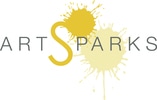Programme Offerings
|
Creative Learning Lab
Housed within under-resourced schools, the Creative Learning Labs offer a space to nurture children’s creative potential, and foster essential 21st century learning and life skills. Carefully designed visual arts-based interventions contribute to this vibrant space for hands-on, experiential, inquiry-based learning. Creative Learning Labs are designed serve children 1st through 10th grades. Partnership Programme Strategic partnerships with other community-based organizations that work with children and/or teachers enable ArtSparks to leverage resources and mobilize others while expanding the scope of its work towards helping support children’s growth and development. EdSparks Collective To learn about EdSparks Collective, please click here. Model School Initiative Awareness building and advocacy regarding the vital role that visual art & design can and should play in children’s education are important aspects of ArtSparks’ work. Through the Model School Initiative ArtSparks works closely with both students and teachers at a core group of schools. Model schools receiving our carefully designed school-based programmes, geared towards 6th-10th grade, offer exemplars that we periodically disseminate through various platforms such as public exhibitions, educational conferences, publications, and other forums. |
Testimonials
|
The confidence of the students to express their thoughts seems to have really been enhanced by the programme. The programme has created a space for engaging meaningfully and giving shape to ideas and beliefs. The integration and application of a range of skills in everything the students do, the conviction with which students state a point of view, validating them with reasons, are all discernible since their participation.
—Principal Skills like collaboration are so important. And now, through their work in the Creative Learning Lab, I am seeing students are learning to collaborate more. When asked: what does collaboration mean, the students now say: being happy when working together; taking everyones ideas and putting them together; learning to compromise. —Teacher I was struck and moved by the powerful messages and expressive power of the student’s artworks. Art seems to be a most effective way to encourage critical thought and problem solving. —ArtSparks Exhibition Attendee |
What Are 21st Century Learning Skills?
|
“21st century learning skills are increasingly being recognized as the skills that separate students who are prepared for increasingly complex life and work environments in the 21st century, and those who are not” (P21's Framework for 21st Century Learning)
Below are the key 21st century learning skills:
Why Teach 21st Century Learning Skills? Routine job skills of the past find no place in the 21st century workplace. Organizations today need a workforce that is equipped with skills beyond the fundamentals of reading, writing and arithmetic. The Partnership for 21st Century Learning states that skills such as critical thinking, problem solving, communication, collaboration, creativity and innovation are critical for future success. In an age where change is the only constant, understanding and applying 21st century learning skills will allow our children to be adaptive and innovative in responding to new demands and changing circumstances. What Are Life Skills? "Life skills are defined as psychosocial abilities for adaptive and positive behaviour that enable individuals to deal effectively with the demands and challenges of everyday life” (UNICEF, 2003). Below are some of the key life skills:
Why Teach Life Skills? Life skills form the core of our social and emotional wellbeing. And, the extent to which we are able to apply them can determines how we adjust and respond to life’s myriad experiences. When fostered over a period of time, these skills become internalized and manifest as habits. Why Focus on Visual Art & Design? Arts education provides an inclusionary solution to develop valuable skills and attitudes in a wide range of learners who might otherwise be marginalized. According to research, arts education can foster broad dispositions and habits of mind such as the ability to think creatively, envision, pose questions, test ideas, deal with ambiguity, and more (Harvard University; Wallace Foundation). Studies also show that arts education and integration can boost academic achievement and student motivation (Turnaround Arts; Arts Achieve), and enhance cultural awareness, social responsibility, empathy, and acceptance of others (UNESCO). |
Content and images are the property of ArtSparks Foundation. Copyright © 2024. All Rights Reserved.
